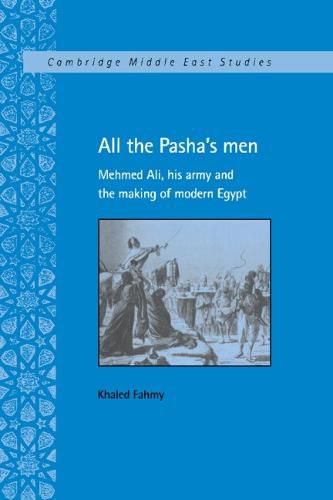Readings Newsletter
Become a Readings Member to make your shopping experience even easier.
Sign in or sign up for free!
You’re not far away from qualifying for FREE standard shipping within Australia
You’ve qualified for FREE standard shipping within Australia
The cart is loading…






While previous scholarship has viewed Mehmed Ali Pasha as the founder of modern Egypt, Khaled Fahmy offers a new interpretation of his role in the rise of Egyptian nationalism, locating him in the Ottoman context as an ambitious Ottoman reformer. Basing his work on previously neglected archival material, the author demonstrates how Mehmed Ali sought to develop the Egyptian economy and to build up the army, not as a means of gaining Egyptian independence from the Ottoman Empire, but to further his own ambitions for hereditary rule over the province. In its analysis of nation-building and the construction of state power, the book makes a significant contribution to the larger theoretical debates. It will therefore be essential reading for students in the field, as well as for Ottomanists, military historians and those interested in the development of the modern nation-state.
$9.00 standard shipping within Australia
FREE standard shipping within Australia for orders over $100.00
Express & International shipping calculated at checkout
While previous scholarship has viewed Mehmed Ali Pasha as the founder of modern Egypt, Khaled Fahmy offers a new interpretation of his role in the rise of Egyptian nationalism, locating him in the Ottoman context as an ambitious Ottoman reformer. Basing his work on previously neglected archival material, the author demonstrates how Mehmed Ali sought to develop the Egyptian economy and to build up the army, not as a means of gaining Egyptian independence from the Ottoman Empire, but to further his own ambitions for hereditary rule over the province. In its analysis of nation-building and the construction of state power, the book makes a significant contribution to the larger theoretical debates. It will therefore be essential reading for students in the field, as well as for Ottomanists, military historians and those interested in the development of the modern nation-state.